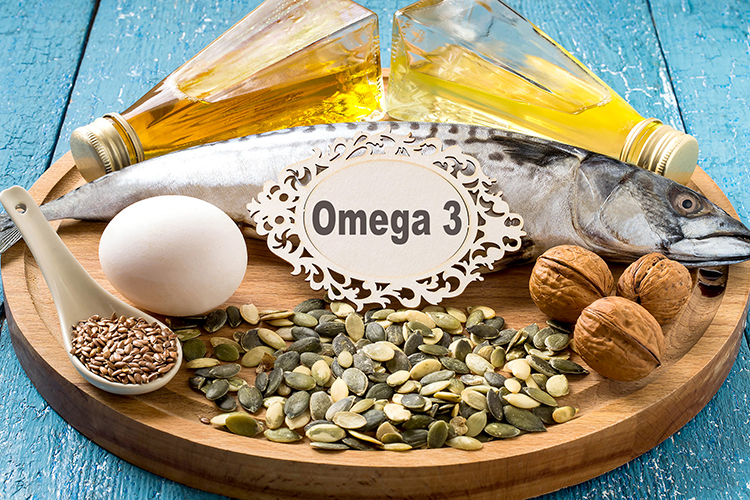
If you’re going ketogenic, you already know the demonization of fat over the past two generations has been wrongheaded and harmful.
But that doesn’t mean that all fats and oils are made equal.
Different fats and oils have different properties and different effects in your body, so be careful what you add to your ketogenic food list.
Here are my favorite ketogenic diet foods.
1. Extra Virgin Olive Oil (EVOO)
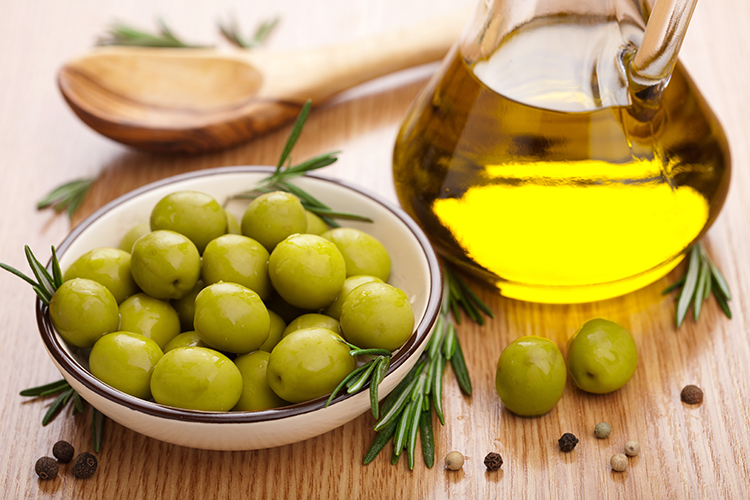
So much more than just salad dressing!
EVOO is rich in oleocanthal, an anti-inflammatory and antioxidant compound.
Studies in animals suggest that oleocanthal alleviates the symptoms of Alzheimer’s and it can also help reduce the build-up of the amyloid plaques linked with that disease.
EVOO reduces blood pressure and increases high-density lipid (HDL) cholesterol (the “good cholesterol”).
It can also improve bone health and help prevent or alleviate osteoporosis.
Olive oil is central to the ketogenic diet menu.
Use it in low-heat cooking and splash it liberally on salads and vegetables.
You can even drink it.
2. Ghee: Butter but Better!
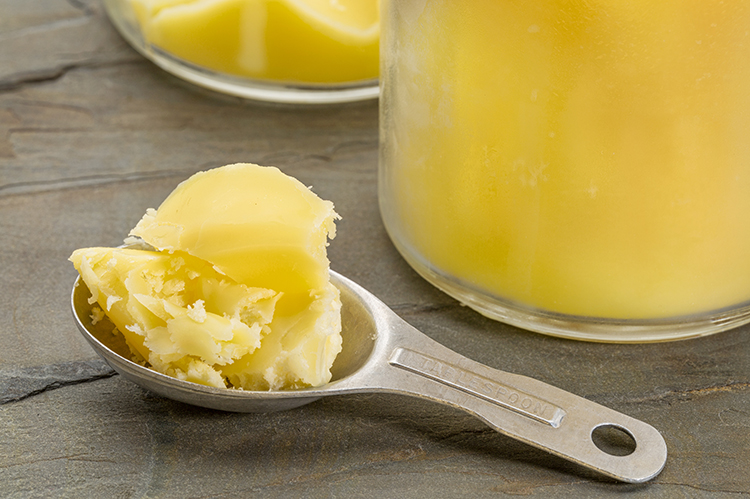
Ghee is butter that it has been simmered so the water in it evaporates and the fat is separated from the milk solids.
Prized in Indian cuisine and Ayurvedic medicine for millennia, it is aromatic and has a nutty taste.
Ghee is pure fat with no milk residue.
This means it:
- Is free of lactose and casein
- Does not need to be refrigerated
- Has a very high smoke point, which makes it excellent for all kinds of cooking.
It is also rich in some good fats:
- Butyrate, a short-chain fatty acid that reduces intestinal inflammation and enhances colon health
- Conjugated linoleic acid (CLA), which may help curb appetite, burn fat and boost the good HDL form of cholesterol and high blood pressure and reduce inflammation in the body. (Note: the CLA found in supplements comes from safflower oil and doesn’t have the same health effects as CLA from eggs, meat and dairy obtained from animals with healthy diets.)
3. Omega-3 Fish Oil: Anti-Inflammatory Brain Food
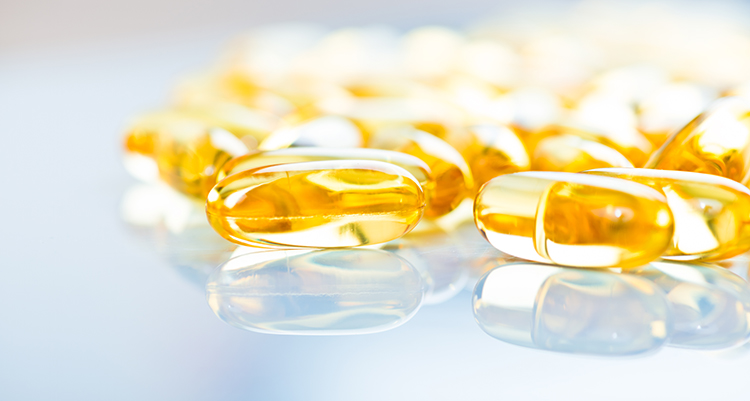
Fish oil curbs inflammation and provides healthy fats for your brain.
Eat plenty of oily fish, such as salmon, sardines and mackerel.
Wild fish are healthier than farmed fish, and smaller fish are healthier than large fish.
When taking fish oil supplements:
- Buy a high-quality cold-pressed fish oil
- Refrigerate the supplement so it doesn’t spoil
- Take vitamin E (d-alpha tocopherol or mixed tocopherols, NOT dl-alpha tocopherol) with the fish oil. Fish oil is unstable, and the vitamin E will help prevent the fish oil oxidizing inside your body.
4. MCT Oil: Rocket Fuel for Ketogenic Diet Weight Loss
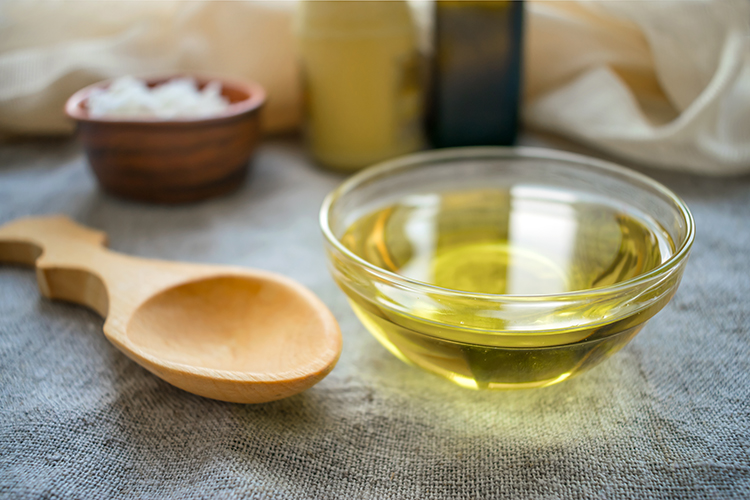
Consuming medium chain triglycerides is the fastest way to produce ketones.
MCTs are metabolized differently from other fats.
Unlike longer-chain fatty acids, the liver quickly breaks down MCTs into fatty acids and converts them into ketones.
MCTs deliver quick energy for the body and brain, suppress appetite and stimulate weight loss.
MCT oil is generally produced from coconut oil and palm oil.
5. Coconut Oil: Many Health Benefits
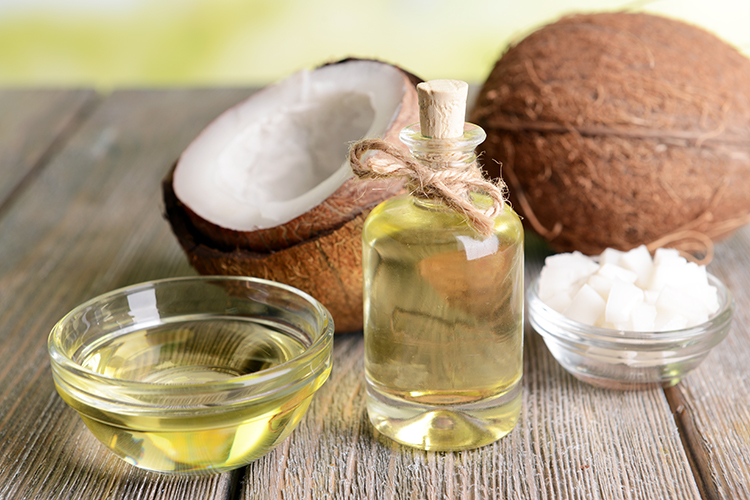
Coconut oil is more than 60% MCTs.
But MCT oil supplements deliver mainly capric acid and caprylic acid, while coconut oil is mostly lauric acid.
Lauric acid is slower to digest than other MCTs, so it doesn’t deliver the same fast ketone energy hit.
But lauric acid is naturally antimicrobial, antifungal, antibacterial and antiviral.
It boosts gut health by killing bad bacteria and candida.
It also boosts good HDL cholesterol, and digestion converts it to monolaurin, which greatly enhances immune function.
Human breast milk is 6.2% lauric acid.
Plus coconut oil great for low-to-medium heat Asian cooking!
6. Avocado: Fat Plus Fiber
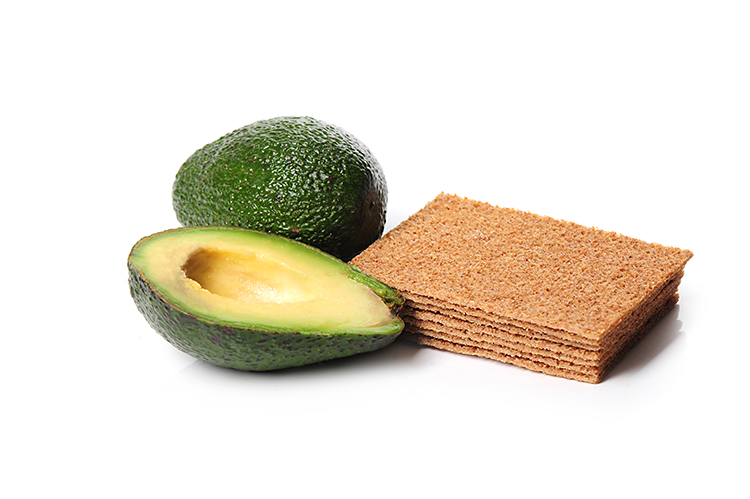
A medium avocado has 29 grams of healthy fat (mostly monounsaturated) and 13g of fiber.
No wonder this food is so filling! One study found that people who ate avocado with a meal felt 23% more satisfied than people who didn’t eat this fruit.
The high fiber content means that there are just 4g of net digestible carbs in a medium avocado.
Eating avocados regularly can boost good HDL cholesterol and reduce LDL cholesterol and triglycerides.
Avocado oil is great for salad dressing and cooking.
It has a smoke point of 482F (250C).
7. Pumpkin Seeds: Guilt-Free Crunchy Keto Treats
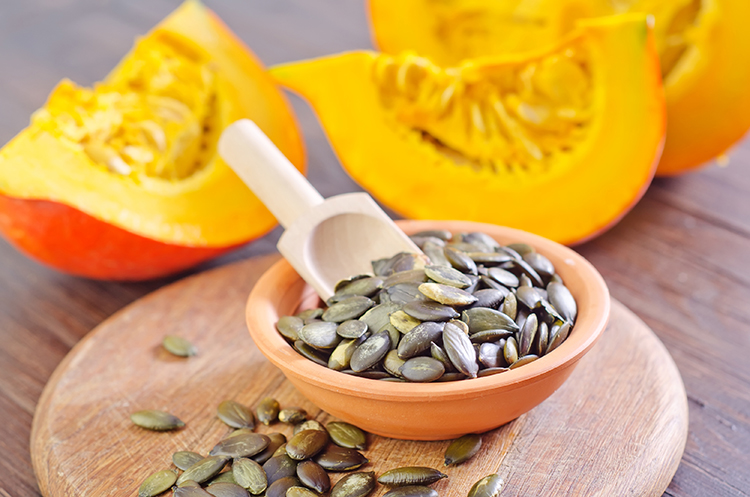
100 grams of pumpkin seeds (or pepitas) have 46.6g of fat, 30g of protein and 18g of fiber – but just 3.33 of net carbs.
Pumpkin seeds also have plenty of antioxidants, omega 3 fatty acids, magnesium, zinc, manganese, and vitamins E and K.
Having a tasty, crunchy treat at hand also makes compliance with the keto diet much easier.
Put pumpkin seeds through a food processor or coffee grinder to produce flour for keto cookies.
Ready to start your Keto Diet?
If you’re still unsure about how to eat, what to eat or what to avoid, don’t worry you’re not alone! There is a little-known diet system called The 28-Day Keto Challenge which will teach you everything you need to know and guide you through your first month. Getting that in check will increase your metabolism and allow you to shed weight and shed it fast.
Women who have followed The 28-Day Keto Challenge reported losing up to 21 pounds and 2-4 inches from their waist in just a matter of 4 weeks—the methods in The 28-Day Keto Challenge are all backed by science.
Check out this video on The 28-Day Keto Challenge now to learn more about how to follow the diet—and lose weight and improve your life in 28 days.

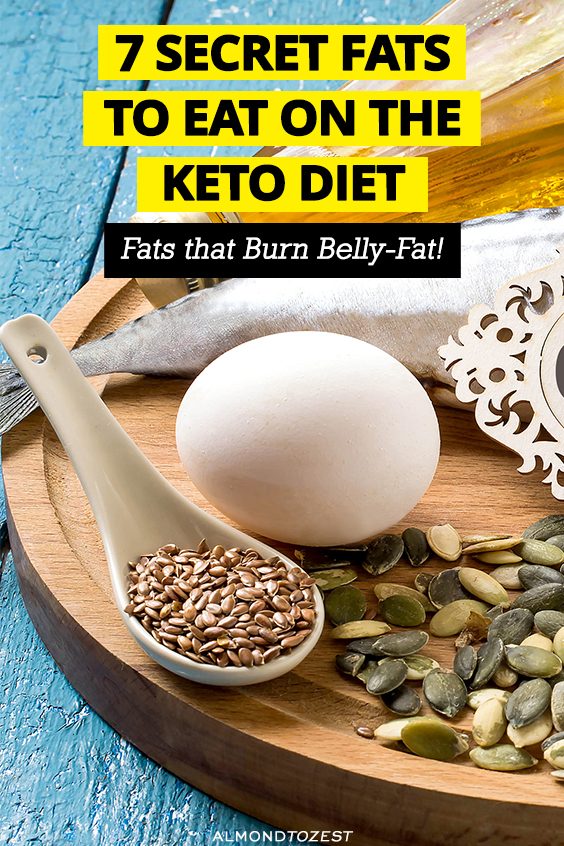
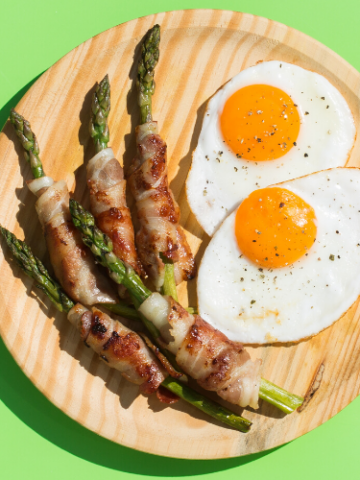
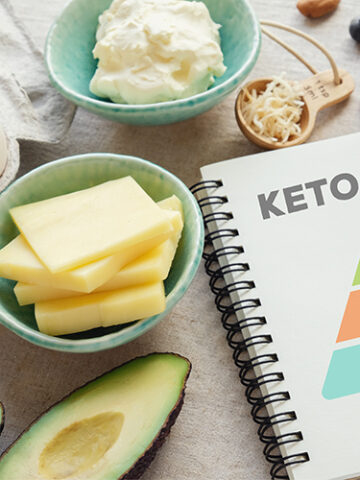
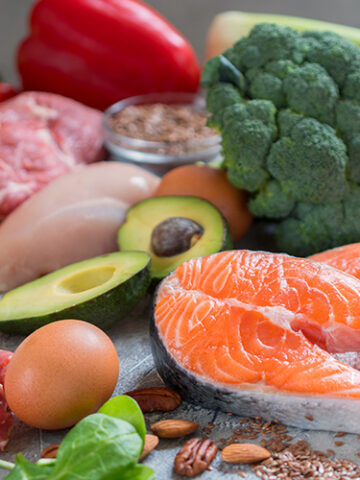
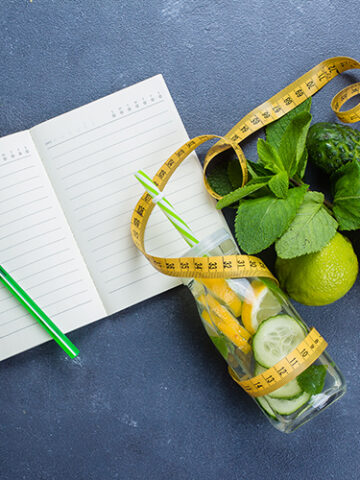
Leave a Reply